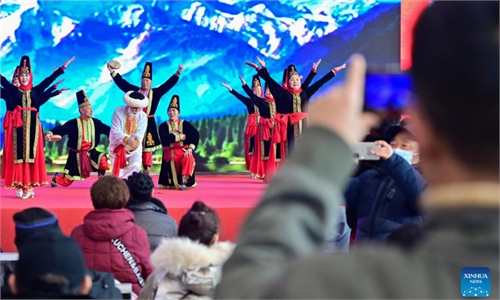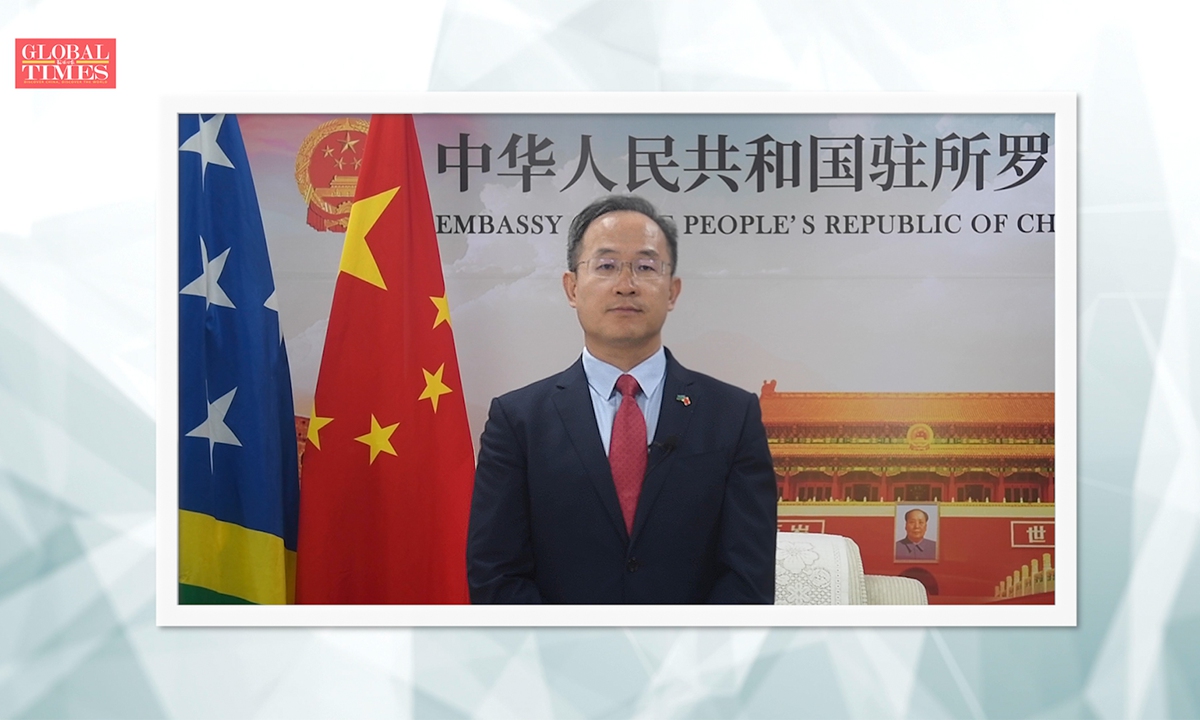Illustration: Chen Xia/GT
Xi Extends Spring Festival Greetings to All Chinese
This year's Spring Festival has two special features compared to the past, which add more joy to the festival. First, the UN recognized the Lunar New Year as one of its optional holidays. Secretary-General Antonio Guterres recently thanked China and the Chinese people on behalf of the UN for their unwavering support to the UN, multilateralism and global progress. Second, this year will celebrate the 75th anniversary of the founding of the People's Republic of China. This is dual happiness. The Chinese people's expectations for family happiness and their confidence in the country's prosperity are deeply integrated.
From a global perspective, the Spring Festival's influence is growing. Nearly 20 countries have designated the Spring Festival as a legal holiday. About one-fifth of the world's population celebrate the Spring Festival in different forms. The "Chinese New Year" has truly transformed into the "Global New Year." This is not only driven by the increasing global influence of Chinese culture, but also the result of the charm of the Spring Festival itself being recognized and shared by more and more people. The meaning of the Spring Festival is very good. "The new year begins again and everything is renewed." The expectation for the warmth of spring and the recovery of all things is shared by all mankind. The forms of celebrating the Spring Festival - writing Spring Festival couplets, decorating windows with paper cuts, lion and dragon dances - have a vitality that invigorates people. The connotation of the Spring Festival - joy, harmony and reunion - contains profound humanistic care. The Spring Festival is closely connected with Chinese culture, and it is the most condensed expression of Chinese culture. The charm and spirit of the Spring Festival are the charm and spirit of Chinese culture.
2024 is the Year of the Dragon in the Chinese lunar calendar. The dragon embodies the aspiration for soaring ambition, strength without dominance, and benevolence toward all beings. It serves as the totem and distinctive cultural symbol of the Chinese nation. UN Secretary-General Guterres remarked that "we need these qualities [of the dragon] to rise to today's global challenges." This is a statement of truth. As the world once again stands at the crossroads of history, enlightened individuals consciously seek courage, wisdom, and strength from the Chinese nation, an ancient nation that has gone through many storms and tribulations.
Over the past year, facing various risks and challenges at home and abroad, China has endured significant pressure and experienced numerous trials. However, amid the storms, we have strengthened our physique and fortified our resilience. It is undeniable that present-day China plays a pivotal role globally. Yet, with the Chinese people's vision of a world where self-improvement benefits all, they consistently contribute certainty and positive energy to the complex and changing world.
Just as General Secretary of the Communist Party of China Central Committee Xi Jinping pointed out in his Spring Festival greetings to all Chinese, looking back at all the hard work over the past year, we have more deeply realized that building a strong country and realizing national rejuvenation on all fronts through the Chinese path to modernization is not only a bright road for the Chinese people to pursue a better and happy life, but also a just way to promote world peace and development. Chinese people do not expect free lunch; they believe that happiness is achieved through hard work. Whether weak or strong, poor or prosperous, the Chinese adhere to benevolence, mutual prosperity, and view plunder and aggression as great evils. The Spring Festival, the oldest, grandest, and most significant traditional festival in China, embodies the most authentic spiritual and cultural essence of the Chinese nation. It represents a spirit that is peaceful, harmonious, positive, and resilient.
A dragon soars in the sky, but China's development must remain grounded, a truth deeply understood by all Chinese people. 2024 marks the 75th anniversary of the founding of the People's Republic of China and is a crucial year for achieving the goals and tasks of the 14th Five-Year Plan (2021-25). The challenges and difficulties facing China in the Year of the Dragon may not be fewer than in previous years, but we also believe in the auspiciousness of the "Dragon Year." The Chinese economy has stabilized and rebounded, with signs of a rising trend in the new qualitative productive forces during the Year of the Dragon. Our confidence is not mere rhetoric but stems from the fundamental lessons learned over the 75-year development journey of the People's Republic of China. It also draws from the immense strength embodied in the Chinese nation during the Spring Festival and the spirit of continuous self-improvement.
- Carry on historical memories Chinese President Xi Jinping highly values culture and has a profound understanding of culture which has stre...
- Selling and buying property in a period of change Selling and buying property in a period of change As the economy continues its slow re...















